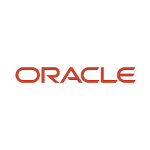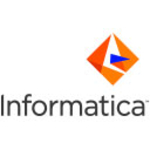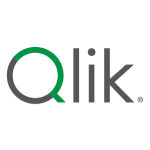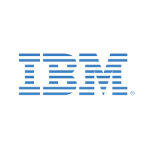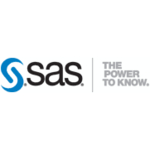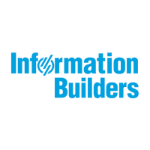List of Best Master Data Management Software
Showing 10 of 16 productsOracle MDM, also known as Master Data Management, is a software solution that helps businesses effectively manage their critical data in a centralized system. With its advanced capabilities, Oracle MDM streamlines data integration, improves data qual...Read Oracle MDM Reviews
Dell Boomi is a highly versatile and innovative software that connects various business applications, systems, and processes, making it easier for organizations to automate and streamline their operations. With its cloud-based integration platform, D...Read Dell Boomi Reviews
Profisee is a Data Management Software catered towards Startups and Agencies. It is a complete solution for Windows that includes various features such as Data Integration, Data Discovery, Match & Merge, Data Quality Control, and Digital Asset Manag...Read Profisee Reviews
Informatica MDM, a powerful and versatile data management platform designed to help businesses streamline and maximize the use of their data. With its advanced capabilities and user-friendly interface, Informatica MDM empowers organizations to make d...Read Informatica MDM Reviews
Talend Data Fabric is a top-of-the-line software that provides a seamless is a way to integrate, manage, and analyze data across various platforms. This innovative solution offers a cohesive data management experience, empowering businesses to make d...Read Talend Data Fabric Reviews
IBM InfoSphere Information Server is a data integration and management software that is designed to help organizations efficiently manage and analyze large volumes of data. With advanced capabilities and a user-friendly interface, it is a highly soug...Read IBM InfoSphere Information Server Reviews
SAS Data is a software used by businesses worldwide to analyze and manage their data. With its innovative features and user-friendly interface, SAS Data simplifies complex data analysis and empowers organizations to make informed decisions. Join the...Read SAS Data Reviews
Omni Gen is a software that empowers businesses with powerful data management solutions. Streamline your processes, gain insights, and increase efficiency with this dynamic tool. Say goodbye to complex data management and hello to simplified operatio...Read Omni Gen Reviews
Ataccama is a data management platform that simplifies and streamlines data processes to help businesses harness the full potential of their data. From data quality and governance to master data management, Ataccama offers a robust solution to enable...Read Ataccama Reviews
Stibo STEP is a software solution designed to transform how businesses manage their data. With its user-friendly interface functionalities, Stibo STEP empowers companies to simplify their data management processes and drive organizational growth. Say...Read Stibo STEP Reviews
- What Is Master Data Management Software?
- Top Reasons Why Businesses Need Master Data Management Software?
- What Are the Top Key Features of Master Data Management Software?
- What Are the Top Benefits of Master Data Management Software?
- What Are the Steps to Choose the Right Master Data Management Software?
- What Are the Types of Master Data Management Software for Different Industries?
- What Are the Technology Trends for Best Master Data Management Software?
- What Are the Deployment Options for Master Data Management Software?
What Is Master Data Management Software?
MDM (master data management) software assists firms in ensuring that all of their data is correct and consistent across their whole IT system. This is accomplished by gathering and managing "master" data such as customer, product, and supplier information shared by different applications and databases.
MDM software's purpose is to provide a unified, consistent view of this data and to ensure that it is up-to-date and accurate. Organizations can use MDM software to avoid data redundancies, inaccuracies, and inconsistencies, resulting in better decision-making, process efficiency, and customer satisfaction.
Master data management software, in essence, serves as the "single source of truth" for a company's data. It connects and synchronizes diverse data sources, allowing for simpler access and analysis. Data quality checks are also automated by MDM software to assure data accuracy and integrity.
MDM applications are applicable to any industry. Top master data management software, for example, can maintain track of store locations, inventory levels, price information, and ordering processes in the retail industry. MDM software aids in customer onboarding and KYC compliance in banking and finance.
Master data management software in the healthcare industry delivers a consolidated view of all patient data. In short, MDM software is a great tool for gathering, storing, and disseminating high-quality data throughout a company. It enables enterprises to swiftly and easily collect and organize essential data, resulting in more efficient processes, better decision-making, and more customer satisfaction.
Top Reasons Why Businesses Need Master Data Management Software?
1. Accurate and consistent viewing: The utilization of Master Data Management software facilitates enhanced accuracy and uniformity in data viewing and accessibility across various departments inside enterprises.
2. Automated data cleansing: The utilization of Mobile Device Management (MDM) software enables organizations to automate the process of data cleansing at predetermined intervals, hence diminishing the need for manual intervention in maintaining data cleanliness.
3. Better decision-making: A master data management system facilitates the process of extracting valuable insights and enabling informed decision-making within enterprises by leveraging precise and current data.
4. Improved customer experience: Mobile Device Management software enables organizations to effectively interact with their clientele through various communication channels, ensuring the provision of precise and punctual information.
5. Reduced operational inefficiencies: The utilization of Mobile Device Management (MDM) software has the potential to enhance the precision, velocity, and effectiveness of several operational procedures, including order entry and inventory management.
6. Improved quality assurance: The utilization of Mobile Device Management (MDM) software aids enterprises in guaranteeing the exclusive use of high-quality data across the entirety of the corporation.
7. Automated data compliance: The best master data management software can assist enterprises in fulfilling their data security and privacy obligations through the use of automated compliance verification processes.
8. Improved customer retention: Organizations can leverage Master Data Management (MDM) software to cultivate robust customer relationships by offering tailored experiences that are informed by precise client data.
9. Centralized data repository: The utilization of Mobile Device Management (MDM) software enables organizations to consolidate their data into a unified repository, hence facilitating streamlined maintenance and enhanced accessibility.
10. Increased data security: Top master data management systems have the potential to assist organizations in safeguarding their data against unauthorized access or inadvertent loss through the use of advanced security measures, including encryption and authentication mechanisms.
11. Real-time data synchronization: Mobile Device Management (MDM) systems can facilitate the synchronization of data in real-time across many departments and channels inside organizations.
12. Reduced errors: The utilization of Mobile Device Management (MDM) software has the potential to mitigate the likelihood of errors and data corruption by effectively maintaining data accuracy across various platforms.
13. Increased scalability: Mobile Device Management (MDM) software enables organizations to efficiently and flexibly expand their systems, hence facilitating the alignment of their operations with evolving market requirements.
14. Better data governance: A master data management system can assist organizations in effectively overseeing and regulating the access and utilization of their data, in alignment with internal protocols and norms.
15. Enhanced customer intelligence: Mobile Device Management (MDM) solutions have the potential to provide organizations with enhanced insights into their client base and their behavioral patterns, thereby enabling them to make more informed and strategic decisions.
What Are the Top Key Features of Master Data Management Software?
The key features of master data management software include:
1. Data Aggregation and Consolidation: Mobile Device Management (MDM) software possesses the capability to collect data from several sources and merge it into a unified and reliable source.
2. Data Quality Management: MDM software plays a crucial role in ensuring the correctness and integrity of data through various mechanisms such as anomaly detection, error identification, validation against source references, and format standardization.
3. Data Governance: Mobile Device Management (MDM) software offers a range of tools that facilitate the creation and implementation of policies about data protection, security, and access.
4. Data Security: MDM master data management software serves the purpose of safeguarding master data from illegal access or alteration. Additionally, it facilitates the implementation of data masking and encryption techniques.
5. Data Synchronization: Mobile Device Management software can ensure that data remains current across several repositories in real-time.
6. Data Visibility: The utilization of Mobile Device Management software facilitates the acquisition of comprehensive insights into both standard and customized reports. These reports serve the purpose of identifying and analyzing various trends, patterns, or exceptions.
7. Metadata Management: Metadata management (MDM) software is designed to effectively store, maintain, and analyze metadata to guarantee auditability and consistency.
8. Supporting Technologies: Top master data management systems are capable of providing support for several underlying technologies, including data warehouses, ETL procedures, and APIs.
The aforementioned characteristics of Mobile Device Management (MDM) software contribute to the enhancement of data accessibility and quality, while concurrently upholding robust levels of security and governance.
What Are the Top Benefits of Master Data Management Software?
1. Improved Data Quality and Consistency: Master data management software serves as a centralized platform for the administration of critical organizational data, facilitating the standardization of data formats across several systems. This standardization process effectively mitigates data variety and errors.
2. Reduced Data Duplication: The utilization of a master data management system facilitates the mitigation and prevention of redundant data sources, hence reducing the likelihood of data duplication and discrepancies.
3. Increased Efficiency: The utilization of Mobile Device Management software enables enterprises to effectively eradicate the need for manual data entry and optimize operational procedures, hence leading to enhanced operational efficiency and superior customer service.
4. Improved Decision-Making: Mobile Device Management (MDM) software facilitates the retrieval and examination of precise and punctual data, hence contributing to the enhancement of efficient decision-making processes.
5. Reduced Costs: The utilization of Master Data Management (MDM) software facilitates the reduction of expenses associated with data management operations through the implementation of standardized and centralized approaches to important data management.
6. Improved Compliance: Mobile Device Management (MDM) software facilitates organizational adherence to relevant legal statutes and regulatory frameworks by offering comprehensive oversight and authority over all data.
7. Enhanced Security: MDM software master data management plays a crucial role in safeguarding enterprises from data breaches by facilitating secure access to and encryption of all data.
8. Scalability: The scalability of Mobile Device Management (MDM) software allows for flexible adjustments to accommodate an organization's data demands, whether increasing or decreasing in magnitude.
9. Improved Customer Insights: MDM software can facilitate organizations in acquiring an enhanced understanding of customer habits, so enabling them to make more well-informed decisions.
What Are the Steps to Choose the Right Master Data Management Software?
1. Identify and Analyze Requirements: Before acquiring any software, it is imperative to conduct a thorough analysis of the needs and objectives of your organization. Consider the dataset that necessitates management and ascertain how it ought to be conserved.
This process will facilitate the reduction of the array of master data management software solutions, thereby enabling the user to make a well-informed decision in selecting the most suitable option based on their specific requirements.
2. Research Options: After determining your software requirements, conduct thorough research to identify potential solutions. When evaluating a program, it is important to take into account many factors such as review ratings, online client testimonials, and the software's potential for scalability to accommodate future development.
3. Set Up Demo: Please initiate contact with the program provider to formally request a demonstration of the software. This opportunity should be utilized to acquaint oneself with the various aspects and ascertain whether it fulfills all of the stipulated standards. Following the demonstration, it is recommended to compile a comprehensive evaluation of the advantages and disadvantages associated with each software alternative.
4. Compare Pricing and Features: Upon evaluating the various characteristics and advantages, it is advisable to engage in discussions with a representative from each respective organization to make a comparative analysis of their pricing structures.
The inclusion of supplementary services, such as training and technical assistance, should be taken into consideration when evaluating the cost.
5. Finalize the Decision: Upon conducting a thorough study on each software choice and carefully evaluating the associated costs, the moment has come to conclude the decision-making process. Choose the solution that most effectively aligns with your requirements and financial constraints.
It is advisable to thoroughly investigate the maintenance and support plans that are included with the software.
What Are the Types of Master Data Management Software for Different Industries?
There exists a diverse array of master data management software solutions catering to various sectors, each meticulously crafted to fulfill distinct industry-specific demands. In the finance and banking sector, the best master data management software is commonly employed to store data about securities, client accounts, political figures, and regulatory bodies, as well as risk management.
The software utilized within this particular industry encompasses a range of products such as data integrity tools, data-quality management systems, data integration software, and other related applications. Master data management software is commonly employed in the retail sector to effectively record and manage crucial data such as price, product information, and client profiles.
The sector frequently employs various applications, such as pricing optimization, collaboration, and governance systems. The software plays a crucial role in healthcare companies by facilitating the management of patient records, handling doctor-related information, capturing insurance data, and maintaining electronic medical records.
Additionally, the utilization of this technology can facilitate the ability of healthcare practitioners to effectively monitor and securely retain pertinent data about drugs, laboratory findings, and confidential healthcare information. Master data management system is utilized in the manufacturing industry to optimize many operations, including production planning and scheduling, materials management, and inventory control.
Additionally, it is employed to integrate data from many sources, leading to an enhanced overall performance. Furthermore, MDM master data management software plays a crucial role in the telecommunications industry by facilitating various functions such as customer service management, invoicing operations, and contact center applications.
The purpose of this program is to enhance client experiences, oversee telecommunications networks, and monitor communications and transaction data.
What Are the Technology Trends for Best Master Data Management Software?
The key points that highlight the technology trends for the most effective master data management software are as follows:
1. Increasingly distributed big data architectures: There is an increasing demand for federated access to intricate data warehouses, which has prompted the emergence of novel big data software architectures. These architectural designs facilitate users in accessing and analyzing data from many sources, thereby establishing a comprehensive data solution.
2. Artificial intelligence in data management: Artificial intelligence (AI) solutions are currently being developed with the aim of enhancing the efficiency of data analysis and management processes. The utilization of AI-driven functionalities, like auto-categorization, auto-population of data fields, and predictive analytics, facilitates users in attaining a more profound comprehension of their data.
3. Integration with the cloud: Cloud-based systems enable users to securely store, efficiently update, and conveniently access data in real-time, regardless of geographical location. Cloud-based technologies offer a higher level of cost-effectiveness compared to on-premises options.
4. Automated data governance: Automated data governance plays a crucial role in safeguarding data quality and precision. Automated procedures provide the capability to promptly detect and rectify data inaccuracies, hence preventing the utilization of erroneous data in the process of decision-making.
5. Increased focus on scalability: As the volume of data increases, there is a corresponding increase in the necessity to implement scalable solutions. The development of top master data management software necessitates a deliberate consideration of scalability to effectively manage greater data quantities and fulfill the need for expedited response times.
What Are the Deployment Options for Master Data Management Software?
Master data management software can be deployed using several approaches, including on-premise, cloud-based, or hybrid installations. In on-premise deployments, the software is installed and operated on the customer's hardware infrastructure, necessitating the customer's active involvement in managing, configuring, and supporting the program.
Cloud-based deployments involve the hosting of software on the cloud, wherein the vendor assumes responsibility for managing, configuring, and maintaining the program. Hybrid deployments integrate on-premise and cloud-based technologies, enabling the incorporation of the advantages offered by both approaches.
